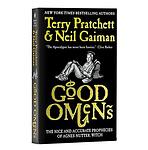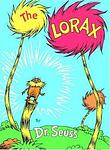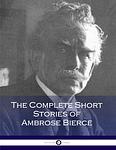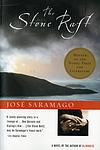The Greatest "Fiction, Satire, Speculative Fiction" Books Since 1970
Click to learn how this list is calculated.
This list represents a comprehensive and trusted collection of the greatest books. Developed through a specialized algorithm, it brings together 300 'best of' book lists to form a definitive guide to the world's most acclaimed books. For those interested in how these books are chosen, additional details can be found on the rankings page.
Genres
Satire is a genre of literature that uses humor, irony, and exaggeration to criticize and ridicule human vices, follies, and shortcomings. It is a form of social commentary that aims to expose the flaws and absurdities of society, politics, and culture. Satirical books often employ sarcasm, wit, and parody to challenge the status quo and provoke thought and reflection in readers. Satire can be both entertaining and thought-provoking, and it has been used throughout history as a powerful tool for social and political critique.
Speculative fiction is an umbrella genre encompassing narrative fiction with supernatural or futuristic elements. This includes genres such as science fiction, fantasy, horror, supernatural fiction, superhero fiction, utopian and dystopian fiction, apocalyptic and post-apocalyptic fiction, and alternate history. The unifying factor of speculative fiction is its departure from the narrative constraints of reality, exploring imaginative and often profound questions that challenge our understanding of the world and our place within it. These stories often delve into themes like the human condition, social commentary, and the exploration of philosophical and ethical dilemmas through the lens of the fantastical or the yet-to-be-possible. By pushing the boundaries of the known, speculative fiction invites readers to consider the myriad possibilities of existence and the potential consequences of our actions in worlds that are, at once, vastly different from and eerily similar to our own.
Countries
Date Range
Reading Statistics
Click the button below to see how many of these books you've read!
Download
If you're interested in downloading this list as a CSV file for use in a spreadsheet application, you can easily do so by clicking the button below. Please note that to ensure a manageable file size and faster download, the CSV will include details for only the first 500 books.
Download-
1. The Hitchhiker's Guide to the Galaxy by Douglas Adams
This comedic science fiction novel follows the intergalactic adventures of an unwitting human, Arthur Dent, who is rescued just before Earth's destruction by his friend Ford Prefect, a researcher for a galactic travel guide. Together, they hitch a ride on a stolen spaceship, encountering a range of bizarre characters, including a depressed robot and a two-headed ex-president of the galaxy. Through a series of satirical and absurd escapades, the book explores themes of existentialism, bureaucracy, and the absurdity of life, all while poking fun at the science fiction genre and offering witty commentary on the human condition.
-
2. Gravity's Rainbow by Thomas Pynchon
Set during the end of World War II, the novel follows Tyrone Slothrop, a lieutenant in the U.S. Army, as he tries to uncover the truth behind a mysterious device, the "Schwarzgerät", that the Germans are using in their V-2 rockets. The narrative is complex and multi-layered, filled with a vast array of characters and subplots, all connected by various themes such as paranoia, technology, and the destructive nature of war. The book is known for its encyclopedic nature and its challenging, postmodernist style.
-
3. The Colour of Magic by Terry Pratchett
This book introduces readers to a flat, disc-shaped world balanced on the back of four elephants who stand on a giant turtle. The story follows an inept and cowardly wizard named Rincewind who is tasked with guiding a naive tourist through this chaotic and fantastical world filled with dragons, trolls, and magic. The narrative is a satirical take on fantasy genre clichés, with humorous and witty commentary throughout.
-
4. Good Omens by Terry Pratchett, Neil Gaiman
"Good Omens" is a humorous take on the biblical Apocalypse, following an angel and a demon who have grown fond of Earth and its inhabitants, and are not too keen on the impending end of the world. As they try to locate the misplaced Antichrist and prevent the Four Horsemen from bringing about Armageddon, they encounter an array of quirky characters, including witch-hunters, modern-day witches, and the Four Horsemen themselves. The novel combines comedy, fantasy, and philosophical themes, offering a satirical critique of religious prophecy and human nature.
-
5. Haroun and the Sea of Stories by Salman Rushdie
The book is a fantastical children's novel that explores the importance of storytelling. It follows the journey of a young boy named Haroun who sets out on a magical adventure to restore his father's ability to tell stories. Along the way, he encounters a vast array of colorful characters and strange lands, including a Sea of Stories. The narrative addresses themes of censorship, the power of storytelling, and the struggle between light and darkness.
-
6. Dirk Gently's Holistic Detective Agency by Douglas Adams
This humorous science fiction novel follows the eccentric detective Dirk Gently, who operates based on the fundamental interconnectedness of all things. His cases involve time travel, ghosts, and an Electric Monk, a labor-saving device that believes things for you. Dirk's current investigation revolves around the disappearance of a cat, a multimillionaire, and a horse in a bathroom, all seemingly unrelated events, but in Dirk's holistic world, everything is connected.
-
7. The Female Man by Joanna Russ
"The Female Man" is a thought-provoking science fiction novel that explores the lives of four women from different dimensions and time periods. As they navigate their respective worlds, the women confront gender inequality, societal expectations, and the limitations imposed on them by a patriarchal society. Through their encounters and conversations, the novel challenges traditional gender roles and offers a powerful critique of sexism and discrimination.
-
8. Grendel by John Gardner
"Grendel" is a thought-provoking novel that retells the epic Beowulf from the perspective of the monster, Grendel. The book explores themes of existentialism, morality, and the nature of humanity as Grendel navigates his lonely existence and interacts with various characters, including the heroic Beowulf. Through his introspective musings, Grendel challenges traditional notions of good and evil, ultimately questioning the purpose and meaning of life.
-
9. The Lorax by Dr. Seuss
In a world where greed and destruction prevail, a curious young boy seeks answers about the disappearance of trees and the strange creature called the Lorax. Through an enchanting tale, Dr. Seuss sheds light on the importance of environmental conservation and the devastating consequences of human exploitation, inspiring readers to take responsibility for protecting the Earth's natural resources.
-
10. Small Gods by Terry Pratchett
In a satirical fantasy world, a once-powerful god finds himself nearly forgotten, his power diminished to almost nothing as he's left with a single believer, a novice monk. This unlikely duo embarks on a journey to confront the corrupt religious institution that has lost sight of true faith, challenging dogma and hypocrisy. Along the way, they encounter a host of quirky characters and navigate philosophical quandaries, ultimately seeking to restore genuine belief and the god's rightful place in the hearts of the people. The narrative cleverly explores themes of religion, belief, and the nature of power through a humorous and thought-provoking lens.
-
11. The Futurological Congress by Stanislaw Lem
In a dystopian future, the protagonist attends a scientific conference where he is exposed to a new hallucinogenic drug that transports him to a surreal and chaotic world. As he navigates through this bizarre reality, he becomes entangled in a conspiracy involving mind-altering technology, political manipulation, and the struggle for power. This satirical novel explores themes of reality, identity, and the dangers of unchecked technological advancements.
-
12. Night Watch by Terry Pratchett
"Night Watch" is a satirical fantasy novel that follows the story of Sam Vimes, a city watch commander who is transported back in time. He must navigate the complexities of the past, assume the identity of his old mentor, and prevent a violent revolution, all while trying to find a way back to his own time. The book is filled with humor, social commentary, and a detailed fantasy world.
-
13. The Truth by Terry Pratchett
In this satirical fantasy novel, the story revolves around the accidental establishment of the city's first newspaper by a young entrepreneur and his talking dog. As the newspaper begins to uncover and report the truth, it finds itself entangled in a plot involving political intrigue, murder, and the machinations of the city's elite. The protagonist must navigate the treacherous waters of news and information, dealing with the moral dilemmas of journalism and the power of the written word, all while the very fabric of the city's society is threatened by the stories his paper brings to light. The novel humorously explores themes of media power, truth, and the responsibility of those who control the flow of information.
-
14. Hogfather by Terry Pratchett
In a fantastical satire of holiday traditions, the very existence of the Discworld's version of Santa Claus, known as the Hogfather, is threatened when a sinister plot is hatched to eliminate him. As belief in the Hogfather wanes, the personification of Death steps in to fill his boots, delivering presents to the children of the Discworld in an attempt to keep the spirit of the holiday alive. Meanwhile, Death's granddaughter, a plucky and resourceful young woman, works to unravel the conspiracy and restore the natural order. The story humorously explores themes of belief, tradition, and the nature of reality through a quirky and whimsical narrative that is both entertaining and thought-provoking.
-
15. Stone Junction: An Alchemical Pot-Boiler by Jim Dodge
This novel follows the life of Daniel Pearse, a young boy who becomes an apprentice in a secretive organization of outlaws, magicians, and gamblers known as AMO (the Alliance of Magicians and Outlaws). As Daniel learns the ways of the AMO, he embarks on a quest for a diamond rumored to possess magical properties. His journey is filled with a series of bizarre encounters and eccentric characters, blending elements of magic, mystery, and adventure.
-
16. The Complete Short Stories Of Ambrose Bierce by Ambrose Bierce
"The Complete Short Stories of Ambrose Bierce" is a collection of gripping and thought-provoking tales that showcase the author's mastery of the short story form. Bierce's stories delve into the dark recesses of the human psyche, exploring themes of war, death, and the supernatural. With his sharp wit and incisive writing style, Bierce crafts narratives that are both entertaining and deeply unsettling, leaving readers pondering the complexities of the human condition long after they have finished reading.
-
17. Sweet Dreams by Michael Frayn
"Sweet Dreams" is a philosophical novel that explores the concept of utopia and the nature of reality through the experiences of its protagonist, who finds himself in a seemingly perfect world after his death. As he navigates this new existence, he encounters a society where all desires are fulfilled and every aspect of life is harmonious. However, as he delves deeper into this idealized realm, he begins to question the authenticity of his experiences and the implications of a world without struggle or pain. The narrative challenges the reader to consider the value of imperfection and the essence of what it means to be truly alive.
-
18. La Saga/ Fuga de J. B./ The Saga/ Escape of J.B. by Gonzalo Torrente Ballester
"La Saga/ Fuga de J. B./ The Saga/ Escape of J.B." is a complex narrative that explores the themes of reality and fiction, and their intersection. The story revolves around a mysterious character, J.B., who escapes from a novel into the real world. As he navigates this new realm, the boundaries between the fictional world he came from and the reality he now inhabits become increasingly blurred, leading to a surreal and thought-provoking exploration of the nature of existence.
-
19. Pastoralia by George Saunders
"Pastoralia" is a collection of six short stories, each delving into the world of weird, dystopian future and highlighting the author's satirical and surreal take on modern life. The stories are set in bizarre environments and situations, such as a couple working as cavemen in a theme park, a male stripper trying to help his mentally ill sister, and a corporate drone receiving cryptic messages from his boss. The characters in these stories struggle with their personal problems while navigating through the absurdity of their surroundings, showcasing the author's unique blend of humor, empathy, and social commentary.
-
20. La Vie Et Demie by Sony Labou Tansi
"La Vie Et Demie" is a thought-provoking novel set in an unnamed African country, where an oppressive regime has seized power and implemented a bizarre policy of dividing its citizens into "halves" and "wholes." The story follows the life of a young girl named Sophie, who is born as a "half" and faces discrimination and hardship due to her status. Through Sophie's experiences, the author explores themes of identity, inequality, and the dehumanizing effects of totalitarianism, offering a powerful critique of social and political systems.
-
21. The End Of The World News by Anthony Burgess
This novel is an ambitious and unconventional triptych that interweaves three distinct narratives: the psychoanalytic adventures of Sigmund Freud, the escapades of Leon Trotsky aboard a ship to New York, and a science fiction tale about the impending collision of Earth with a rogue planet. Through a daring blend of historical fiction, political drama, and speculative storytelling, the book explores themes of human desire, societal upheaval, and the existential threats facing civilization. Its innovative structure and the juxtaposition of seemingly disparate stories challenge readers to consider the interconnectedness of personal, political, and cosmic destinies.
-
22. The Stone Raft by José Saramago
In this surreal exploration, the Iberian Peninsula breaks off from the rest of Europe and begins to drift across the Atlantic Ocean. As the governments and international community scramble to understand and respond to the phenomenon, five disparate individuals find themselves drawn together on a journey across the newly isolated landscape. Through their experiences and interactions, the narrative explores themes of identity, nationality, and the arbitrary nature of borders.
-
23. Going Postal by Terry Pratchett
In this satirical fantasy novel, a notorious con artist is given a second chance at life by being forced to revive the defunct Ankh-Morpork Post Office. As the new Postmaster, he must contend with outdated mail systems, a haunted post office, and the competition from a powerful, unscrupulous clacks communication company. Using his wits and a motley crew of postal employees, he embarks on a madcap journey to restore the postal service, outmaneuver the corporate villains, and ultimately redefine the meaning of communication in a city teeming with magic and mayhem.
-
24. CivilWarLand in Bad Decline by George Saunders
This book is a collection of short stories and a novella, all set in dystopian versions of America. The narratives often feature theme parks, which serve as metaphors for the cultural and moral decay of society. The characters are often trapped in low-wage jobs and are struggling to make ends meet, while also grappling with various personal issues. The stories are infused with dark humor and satire, and they provide a critique of capitalism and consumer culture.
-
25. Wyrd Sisters by Terry Pratchett
In a fantastical realm where witches hold sway over the common folk's superstitions and destinies, three eccentric crones find themselves entangled in royal intrigue after a throne is usurped by a power-hungry duke. The trio, guided by their own peculiar brand of wisdom and the manipulative hands of fate, must navigate the treacherous waters of politics and prophecy to restore the rightful heir to the crown. With a cauldron bubbling with satire and wit, the story cleverly subverts the tropes of Shakespearean drama, fairy tales, and fantasy conventions, all while exploring themes of power, destiny, and the nature of storytelling itself.
Reading Statistics
Click the button below to see how many of these books you've read!
Download
If you're interested in downloading this list as a CSV file for use in a spreadsheet application, you can easily do so by clicking the button below. Please note that to ensure a manageable file size and faster download, the CSV will include details for only the first 500 books.
Download




















